8. “Why Didn’t Rosemary?” by Deep Purple (Rosemary’s Baby)
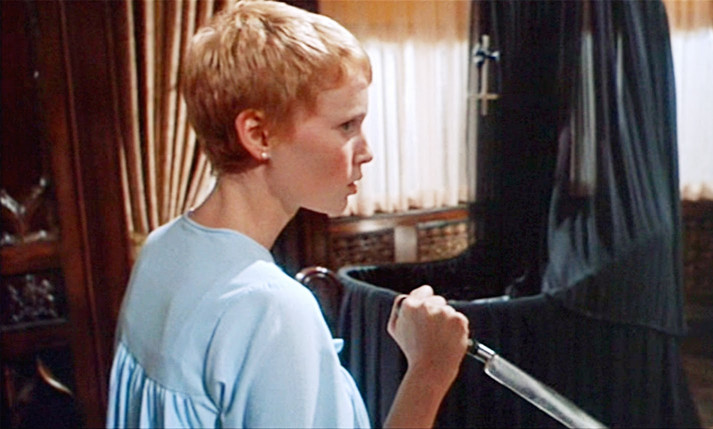
British hard rock band Deep Purple wrote a song about Rosemary’s Baby, asking why she didn’t take the pill? Their refrain comments on an idea running throughout the film “man won’t do it but the devil will.”
Unaware her husband made a deal with occultists to further his acting career, saintly Rosemary stands by helpless as evil turns her world upside down. Despite Rosemary’s efforts to thwart the Satanists, in the end she decides to love and care for the devil’s child.
The song speaks to how evil often targets the most pure among us. Sometimes to defeat evil, one must commit acts of evil. Since evil has no scruples it will have always have the advantage over the good, perhaps the most chilling message of all in Roman Polanski’s Rosemary’s Baby.
7. “Tempest” by Bob Dylan (Inspired by Titanic)

Tempest, the penultimate track on Bob Dylan’s 2012 album of the same title, retells the tragic story of the Titanic, including references from the 1997 James Cameron film. Dylan, by all accounts a movie lover, took a cinematic approach to telling the story. A panorama of humanity in the midst of a disaster of biblical proportions, Dylan references “Leo with his sketchbook” and other characters like “Jim Dandy” who saved a crippled child from drowning. Meanwhile, “brother rose against brother in every circumstance, they fought and slaughtered each other in a deadly dance.”
The Cameron film and the Dylan song both speak to how the Titanic continues to haunt the imagination. The Irish folk melody of the song provides an old time feel, a poetic reflection on humanity and tragedy.
6. “Cigarettes and Red Vines” by Aimee Mann (Inspire by Magnolia)

When Magnolia came out Paul Thomas Anderson described how the music of Aimee Mann inspired the film. Anderson described having so many ideas in his head and Mann’s songs providing the way to a coherent narrative.
“Cigarettes and Red Vines” does not appear on the Magnolia soundtrack, but many have speculated the song is about Anderson and Mann’s collaboration. The poignant lyric “And tell me, would it kill you/Would it really spoil everything if you didn’t blame yourself, you know what I mean?” speaks the theme of forgiveness running throughout Magnolia, a somber song commenting on the characters in the film and possibly the director.
5. “Space Oddity” by David Bowie (Inspired by 2001: A Space Odyssey)
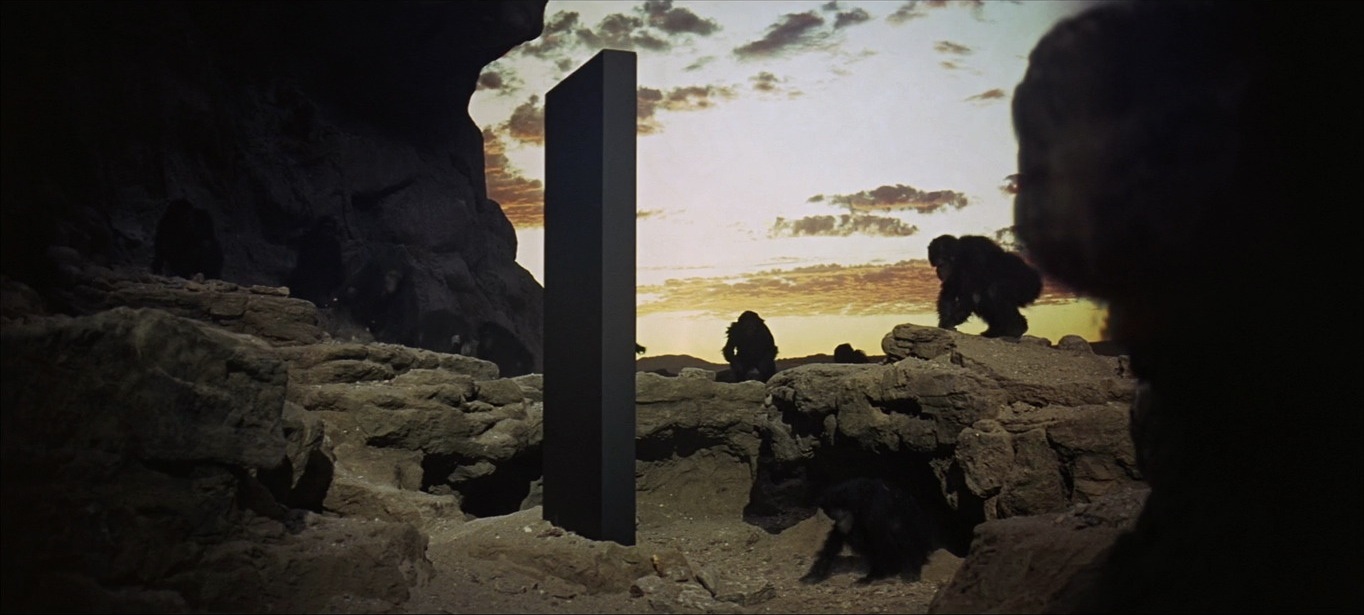
David Bowie’s 1969 hit single “Space Oddity” came from the zeitgeist of Stanley Kubrick’s 2001: A Space Odyssey. The song tells of ill fated astronaut Major Tom who dares to leave his capsule and gaze at the stars. “Space Oddity” channels the wonder and absurdity of living in space, an indifferent environment. Bowie’s haunting vocals are an irresistible blend of wonder and terror.
“Space Oddity” was the first of many to display how the influence of 2001 would inspire not just film, but popular music as well. Science Fiction would predominate in Bowie’s music. In 1976, Bowie starred in his own Sci-Fi cult classic The Man Who Fell to Earth, about an impressionable extraterrestrial stranded on earth.
4. “Psycho Killer” by The Talking Heads (Psycho)
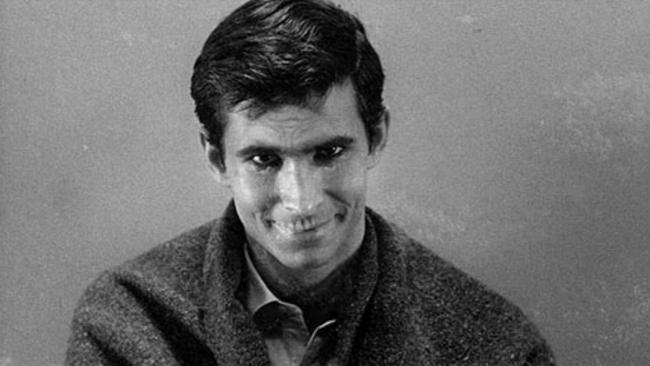
David Byrne of the Talking Heads conjured visions of Norman Bates on their smash hit “Psycho Killer.” Did the 1960 Alfred Hitchcock film inspire the song? Impossible to tell, yet it’s hard not to think of Psycho when listening to the maniacal lyrics. The cascading tension in the song, “Don’t Touch Me I’m a real live wire” tap into the conflicted subconscious of Norman.
Taking the point of view of the serial killer, the song engenders more sympathy than disgust. He speaks French and gets impatient with people, “you start a sentence and can’t even finish it.” It’s a cry for help, tapping into the darkness inside all of us, mirroring the final shot of Norman in Psycho.
3. “Charlie Don’t Surf” by The Clash (Inspired by Apocalypse Now)
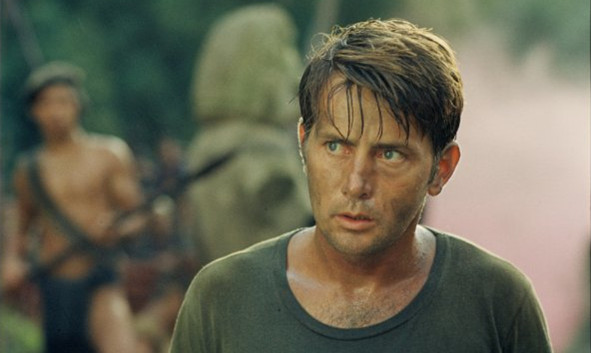
The “Ride of the Valykries” sequence in Apocalypse Now persists as the sublime moment in modern American cinema. Air Calvary officer Colonel Kilgore (Robert Duvall), desperate to find a place to surf (where the waves cut both ways) for his men, decides to attack a village. When his men protest going into such a dangerous area, Kilgore barks “Charlie Don’t Surf!”
The 1980 Clash album Sandanista! referenced Apocalypse Now on the song “Charlie Don’t Surf.” The song speaks to the American desire to control the world through pop culture and guns, “Charlie Don’t Surf for his hamburger Mama, Charlie gonna be a napalm star.” The reggae influenced rocker explains international relations as a cynical game of aggression and deception.
2. “The Union Forever” by The White Stripes (Inspired by Citizen Kane)
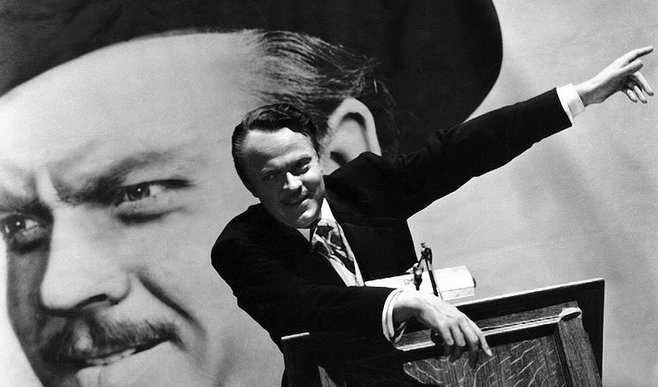
Jack White paid homage to his favorite film Citizen Kane in “The Union Forever.” He took dialogue directly from the film and juxtaposed it with the Motor City rock of The White Stripes.
Citizen Kane transformed 20th century America into a cinematic tour de force. Jack White’s 21st century reinterpretation has the jaded attitude of Generation X. Everyone still dreams of fame and money. Megalomaniacs are still worshipped. White’s mocking delivery of “you said the union forever, you said the union forever” hints at betrayal on a mass scale.
1. “Thunder Road” by Bruce Springsteen (Inspired by Thunder Road)
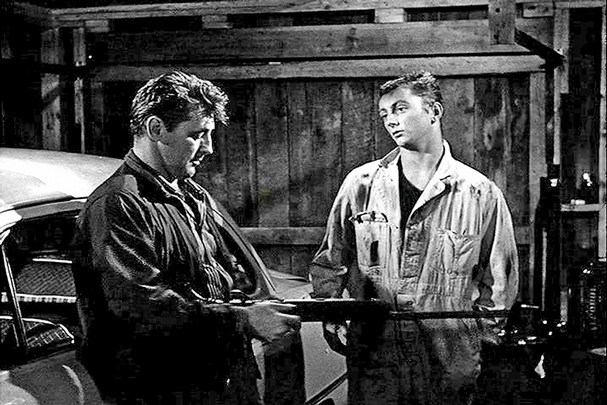
A unique case since the artist in question confessed to never seeing the film before he wrote the song. But he dug the poster. Few songwriters have been more influenced by movies than Springsteen. The bootlegger saga connected with him and inspired what became the opening track to the epic 1975 album Born to Run.
The movie Thunder Road played at drive-ins throughout the American South for decades. Robert Mitchum and his real life son David play two bootlegger brothers who get mixed up with the mob. Ironically, there’s an authentic rock and roll connection to the film as Mitchum wanted Elvis Presley to play the brother.
Springsteen took the mythos of Thunder Road and transformed it into an anthem of liberation. The open road provides the promise of freedom in contrast to “waiting in vain for a savior to arrive from these streets.” Written in the mid-1970s, the song struck a chord at a time when people were desperate for hope.
Springsteen channeled the romanticism of the 1950s and the persona of Robert Mitchum in the song: savage individualism to counter the mass wave, “oh thunder road, lying out there like a killer in the sun.”
Author Bio: Eric teaches English Composition and resides in Dayton, Ohio. A lifelong movie fan, his favorite filmmakers include Steven Spielberg, Martin Scorsese, Akira Kurosawa, Stanley Kubrick, and Quentin Tarantino. In his spare he listens to Bob Dylan, reads history and fiction, and often blogs about those subjects.